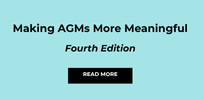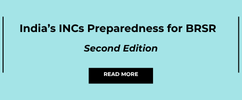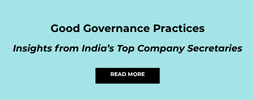EXPERT EXPRESSIONS

Corporate Governance Demystified

M. Damodaran
Chairperson, Excellence Enablers
Former Chairman, SEBI, UTI and IDBI
IS SILENCE GOLDEN?
Allegations do not gain credibility because they are many, or are couched in unacceptable language. Yet, uncomfortable questions must be responded to, even if they are rubbished.
Even before the market had time to absorb the implications of SEBI’s Interim Order passed against the Jane Street group, the Vedanta Group found itself in the midst of adverse mentions. An admitted short seller, Viceroy Research LLC, on July 9, 2025 put out a publication raising several seemingly significant questions relating to the manner in which Vedanta Resources Limited (VRL) was being run. The burden of Viceroy’s song was that VRL was systematically draining Vedanta Limited (VEDL). Viceroy stated that the situation resembled a ponzi scheme “where VEDL’s stakeholders, which included VRL’s creditors, are the suckers.” They described VRL as a “parasite holding company, with no significant operations of its own, propped up entirely by cash extracted from its dying host, VEDL”.
Subsequent thereto, there have been a number of publications by Viceroy. On July 14, 2025, Viceroy referred to the Annual General Meeting (AGM) of VEDL, which they described as an “Annual General Mockery”. Subsequent publications in July, 2025 have raised a number of significant issues which, if proven right, would reflect not only a poor state of corporate governance in the Group, but also point to issues that shareholders need to take note of. It is relevant to mention that the President of India is a 27.92% shareholder in Hindustan Zinc Limited (HZL), a Vedanta Group company, and the Government has not been heard from on this matter.
Before looking at the barrage of allegations, it will be useful to look at the source. Viceroy is an entity that has had adverse findings against it in more than one jurisdiction, including India. Material which is presently in the public domain is to the effect that Viceroy has a 3 member research team, with at least one of them having been pulled up earlier for indefensible conduct. Further, tucked away in a long disclaimer is an admission that what has been put out are not facts, but opinions. In some parts of one or more reports, there is an indication that the source of some of their information is an anonymous insider, making verification next to impossible.
The credibility of the complainant is a necessary, but not sufficient, ingredient to assess the legitimacy or the relevance of the allegations. That said, it is useful to examine whether Vedanta has responded to these series of allegations in the right manner, having regard to the fact that what exists in India is a disclosure-based regime. Given the seriousness of some of the allegations, it would seem inadequate for a large Group to make an overarching statement that some of these matters had earlier come into the public domain, and that it is a rehash of what is already known, and/or published. It would have served the interests of all stakeholders if at least the major allegations were responded to. Interestingly, some of the responses/ explanations have come out in the report of a Proxy Advisory Firm (PAF), which has compared the structuring and the practices followed by Vedanta with that of some large groups to show that what Vedanta had done was not materially different, and was justified.
On its part, Vedanta has referred to the publication of July 9, 2025 as “false propaganda”, but chose not to address Viceroy’s contentions pointwise. According to Viceroy, even at the AGM, only one of the shareholders reportedly raised questions on VEDL’s brand fees, capex spendings and Related Party Transactions (RPTs). The Vedanta promoter responded by calling Viceroy’s report “motivated”. The CFO reportedly ignored questions about the justification and amount of brand fees, without offering any explanation.
The number of questions raised by Viceroy in its different publications are far too many to be addressed in this newsletter. Necessarily, one has to focus on the more fundamental issues involved.
The AGM is a forum for shareholders to raise legitimate questions regarding the functioning of the company in which they have invested. It is therefore disquieting that at the almost 2 hour AGM which took place, most of the speakers only praised the management and the promoter (not unusual in Indian AGMs). Whether this amounts to passive shareholder behaviour, or is a manifestation of the manner in which promoters display tight control on the proceedings of the AGM, is not entirely clear. But given that Viceroy had raised a number of questions, which were in the public domain, it is passing strange that no shareholder, especially institutional investors, chose to raise any of them. Viceroy’s specific questions related to unsustainable financial structure, brand fees, alleged capex fraud, inflated asset value, corporate governance failures, safeguards to ensure that the company’s functioning is not unduly influenced by the promoters, post demerger financial instability, cross shareholding and RPTs. In particular, there were references made to the standing of the auditors, and the quality of audit. Viceroy alleged that the CFO had claimed that the subsidiaries are audited “around the world by Big-4 auditors.” According to Viceroy, one of the auditors was Rakesh M Agrawal and Associates, who are not known to be in the big league. Another London based auditor, whose service was availed of, had been censured previously for poor controls and failing to flag regulatory breaches. Viceroy has also questioned the Board of VEDL as to whether they formally reviewed the “audit arbitrage strategy of appointing banned, sanctioned or compromised auditors across subsidiaries”. There are also overarching questions such as whether safeguards are in place to ensure that VEDL’s Board acts independently of VRL’s interests, especially given the overlapping management and RPTs.
Considering that the Viceroy exposures have come a few months after the Hindenburg saga, robust defence has been mounted by some supporters of Vedanta to the effect that this is yet another attack by a short seller on a large Indian group, in order to destabilise the Indian market. More to the point, one of the 3 PAFs operating in India have headlined their report as “Vedanta under Short Seller Attack” and given explanations of why the allegations should not be given serious attention. In particular, the PAF has said that in capital intensive sectors, such structures, as exist in the Vedanta Group, are common and legitimate, and in support thereof, given examples of large groups which have similar debt servicing structures. The PAF has pleaded for contextual analysis of short seller reports, and advised that “corporate response to such reports should prioritise transparency, timely communication and factual clarification, rather than defensive posturing”.
The responses by VEDL and HZL to the Stock Exchanges are almost identically worded, with the signatories being different. Further, HZL has referred to the response given by VEDL to the Exchanges. Considering that these are 2 separate listed entities, identically worded responses do not leave a good taste.
What should the Vedanta Group do now? They have received legal advice to the effect that the contents of the reports of Viceroy are defamatory, and that they should initiate appropriate legal action. The advice obtained by the Group from a legal luminary focuses, in considerable detail, on the regulatory regime in India, and the existence of checks and balances, but does not address the specific allegations. It is important from the point of view of the ecosystem that lies, if any, should be called out, and appropriately punished. There cannot be a situation in which an admitted short seller, pleading that what it has put out are opinions, and not facts, gets away with unsubstantiated allegations. However, in addition to initiating appropriate legal action, should the Group choose to do so, it would serve the public interest if Vedanta responds points-wise to some of the more serious allegations that have been made, if only to bury such allegations so that they do not resurface.
The rating agencies which have rated VEDL and HZL have found no reason to revise the ratings that they have accorded. It is reasonable to presume that they would have looked at information now in the public domain, and arrived at appropriate conclusions to the effect that there need not be any impact on the ratings already accorded.
What is disquieting in this entire exercise is that one of the entities, HZL, has a 27.92% shareholding of the President of India. Even if all the allegations are entirely without basis, it would be appropriate for the Government of India to seek information from the companies/ Group on possible explanations in order to establish that the allegations are without basis. In such situations, silence will only lead to uninformed comment and criticism, which is best avoided.
The PAF’s report inter alia mentions that “global regulatory scrutiny of short sellers is increasing, with authorities in the US, UK and South Africa investigating manipulative practices and conflict of interest”. It is necessary for SEBI to commence, if it has not already done so, seeking information and subjecting such information to detailed analysis and scrutiny. If there are manipulative practices that emerge from a regulatory study, action should be initiated forthwith because disruptive practices in the securities market should be put down with an iron hand. At the same time, the benefits that short sellers bring to the table should not be discounted. Clearly, there is a balancing act that the Regulator has to attempt for the system to reap the benefits arising out of short selling, while not turning a blind eye to conflict of interest and manipulation.
Unlike in India, there are jurisdictions where research advisory groups are not within the ambit of regulations. Therefore, there is a possibility that unfounded allegations may be made hoping that if a lot of mud is thrown on an object, something will stick. Regulatory coordination across jurisdictions could perhaps find solution to the problem of making allegations without responsibility.
Excellence Enablers
Corporate Governance Specialists | Adding value, not ticking boxes | www.excellenceenablers.com

 (800KB)
(800KB)

